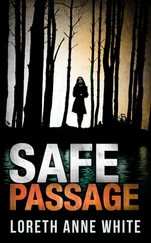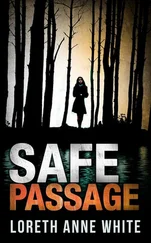The telephone rang as soon as we reached our room, and Louise lifted the receiver gingerly.
“Who is it?” I hissed anxiously.
“The New York Times,” replied Louise succinctly, “wants to know what we look like.”
This was right up my street! I seized the telephone and described us—as I saw us. Other questions followed. What did we think of the Prince of Wales? Of the skyline of New York? Of bobbed hair—a great issue at that time?
No one before had ever wanted to know what we thought of anything. It was marvellous, but only the beginning. The next day, several other newspapers wanted to interview and photograph us, as “the two girls who saved their money to cross the Atlantic,” etcetera.
That evening we donned our Mabs Fashions ’ evening dresses—the first we had ever had. Mine had a thick cotton georgette background, and superimposed upon it in plush —rather like drawing-room chairs—was a design. I had a diamante bow on my stomach, and I thought I was what was then called the cat’s whiskers. With Louise equally fetchingly attired, off we went to sit in the stalls at the opera for the first time in our lives. Girls of our type generally never sat anywhere but in the gallery, in those days.
Which of us who saw the Met in the great days of the prosperity boom can ever forget the fantastic sight of its glorious, sweeping Diamond Horseshoe, or the display of dresses, furs and jewellery?
The Metropolitan and Covent Garden also looked then as opera houses should look. How I hate the drab austerity of an “undressed” Covent Garden today! Opera is a festive art, and in my view, the audience should pay it the compliment of looking a little festive too. Pushing your way into the stalls of a great opera house in scruffy jeans and a pullover brands you as either tiresomely common and insensitive, or rather pathetically exhibitionist.
But from our seats in the fourth row of the stalls on that wonderful night, we looked around, enthralled, at the dazzling scene. It remains with me to this day—and during the darkest days of the war, when everything that was gracious, colourful and beautiful had to go—as one of those shining memories to be cherished and treasured.
Galli-Curci, Gigli, and De Luca formed the cast for La Traviata that night. Our particular star played a Violetta that fulfilled our most eager hopes and anticipations—worth the two years’ wait.
That great first night at the Met we heard the young Gigli for the first time, and although we both preferred him in other roles later, we did know we were hearing a phenomenon. Perhaps for us, the real discovery was De Luca—no longer young, but still at the height of his glory. And the finest baritone we ever heard. His voice, one of the most beautiful possible, had the quality and colour of dark honey in the sunshine; with it went a knowledge of the art of singing, which no one who heard him could ever forget. Even at that time, we knew he was supreme. We have never since had reason to revise this opinion.
Twenty years later, when he was over seventy, we heard him give a recital in New York, and even then he could teach something of the art of singing to almost anyone else I ever heard. Grand old De Luca was one of the glorious company indeed.
At the end of the performance, something wonderful happened. When Galli-Curci came on to take her applause, she picked us out from where we sat clapping in the stalls, and waved to us. I remember thinking, “This is the nearest thing to royalty I shall ever be! I’m being waved at by Galli-Curci across the footlights of the Metropolitan!”
The next day, Galli-Curci asked us to dinner in her apartment. She lived just opposite the Metropolitan Museum on that part of Upper Fifth Avenue then known as Millionaires’ Row. She added that she would send a car for us.
Again we donned our Mabs Fashions ’ evening dresses and swept out, we believed, as to the manner born. Our waiting car possessed a chauffeur and a fur rug.—We had hardly ever been in even a taxi before in our lives.—And away we went up Fifth Avenue, to be deposited at an apartment that looked rather like the Wallace Collection to us. At this point there was a slight social hitch: Louise was wearing an evening cloak made by me, with a near-fur collar, and if this collar were roughly handled, it would crackle. As the manservant took the cloak, the collar crackled . Louise was mortified, but no one seemed to notice. And then Galli-Curci came running downstairs and into the room.
Oh, Lita! How the years roll back when I recall that evening. I suppose it was later that she became “Lita” to us, for those were not the days when every important fan presumed to address stars by their Christian names. But from that first evening, she was a dear, kind, affectionate friend for life.
She apparently needed no more than a few minutes in our company to realize what kind of girls we were, and she asked almost immediately, “Did your mother mind your coming?”
We admitted that she did rather.
“I know exactly what she thought,” Galli-Curci said. “I’ll tell you what we will do. We’ll all write a card to Momma tonight to tell her that you are in a good house and she needn’t worry.”
And she did. In the middle of a busy season, she wrote to Mother, assuring her of our safety and happiness. A typical Galli-Curci gesture, we were to find later, for she combined an extraordinary sensitivity about the feelings of others with the sort of cool common sense one does not always associate with prima donnas.
Years later, one of her great colleagues—who liked her, as a matter of fact—told us many people considered Galli-Curci rather cold and proud. Although a small woman, she had immense dignity and presence, and her Spanish side gave her a rather aristocratic bearing that marked her out in any company. She would have been a fool if she had not known her exact position in the musical world of that day. And Galli-Curci was no fool.
But to us, she was an angel. And she changed our lives.
That first magical evening was like the sort of thing you invent to please yourself, but which never really happens. Plans were made for our enjoyment; we were advised on what to hear at the opera. And, final delight, Homer told us that Arturo Toscanini was returning to New York for the first time, after fifteen years’ absence—following his famous quarrel with Gatti-Casazza—and if we wished to go, he would take us.
In those days, we had only a vague idea of Toscanini’s position in the musical world, but we accepted with alacrity. Thanks to Homer, we witnessed that wonderful scene of excitement and rejoicing when Toscanini returned to New York.
In this connection, Lita told us an amusing story. Once, during Toscanini’s long absence and before the reconciliation between him and Gatti, she said to the famous manager of the Met, “Gatti, why don’t you have Toscanini back?”
Gatti regarded her with somewhat sardonic gloom and replied, “When you have had typhoid fever and have had the good fortune to recover, do you ask to have it again?”
That evening was the prelude to an unbelievable four weeks of musical festivity. In addition to hearing Lita once more in Traviata , we heard her as Rosina in Il Barbiere di Siviglia , and as Gilda in Rigoletto , which I still think her greatest part. I never heard another Gilda who even remotely approached her. She was an absolute mistress of the art of recitative, and her coloratura was as effortless, as natural as the spoken word. Also, she was a very good actress. Not a very great one—that is something different—but a very good one. She even looked a Gilda—quite a tough assignment for some who have essayed the role. With her oval, Renaissance type of face, her magnificent dark eyes, and that essential touch of melancholy, which could sometimes transform her face as well as her voice, she was the living embodiment of Rigoletto’s daughter.
Читать дальше
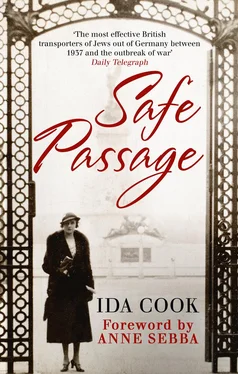
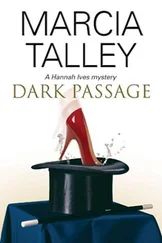



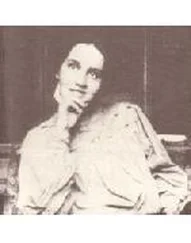
![Джеймс Чейз - Not Safe to Be Free [= The Case of the Strangled Starlet]](/books/417649/dzhejms-chejz-not-safe-to-be-free-the-case-of-the-thumb.webp)
